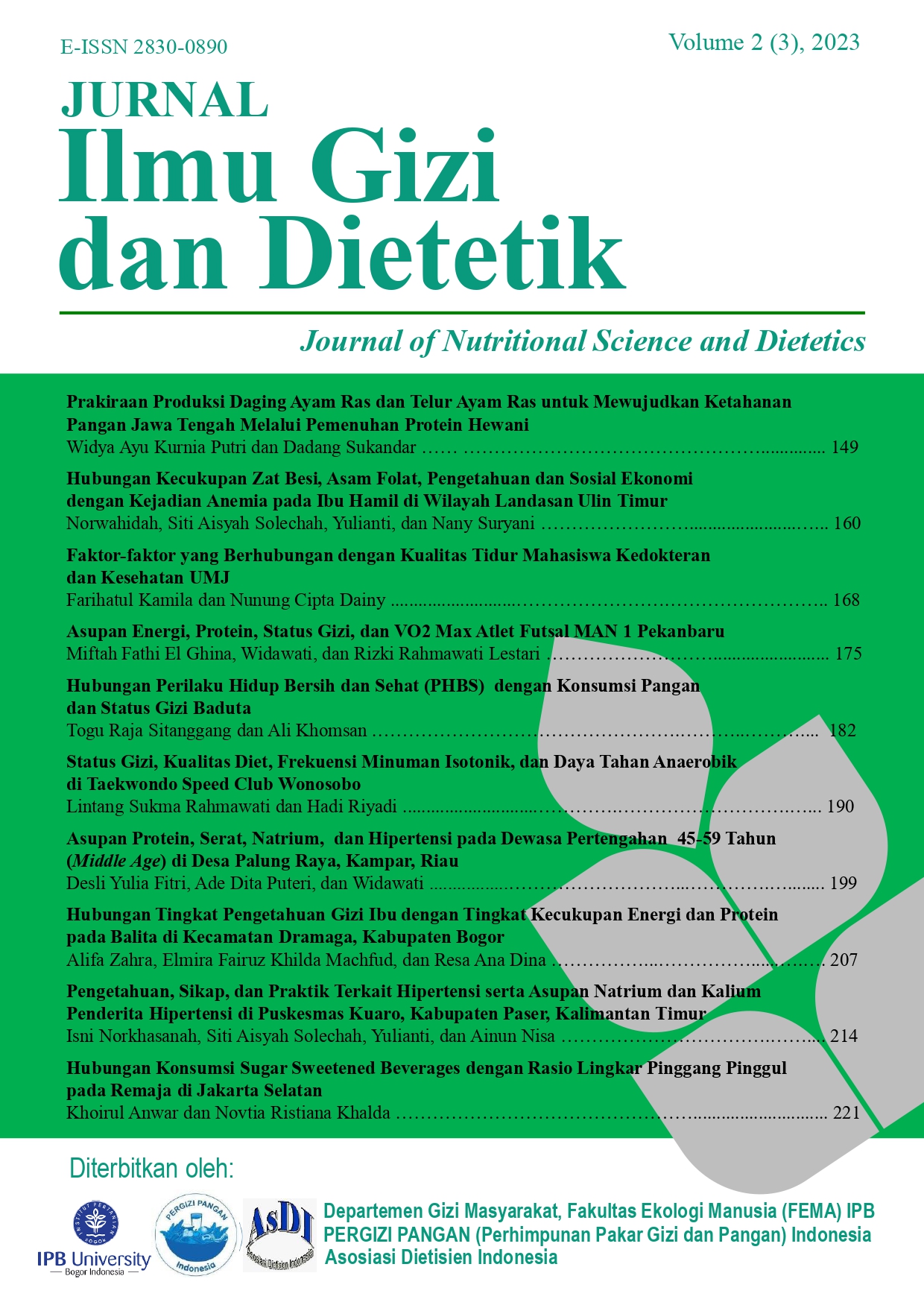Faktor-faktor yang Berhubungan dengan Kualitas Tidur Mahasiswa Kedokteran dan Kesehatan UMJ Factors Associated with Sleep Quality of Medicine and Health UMJ Students
Abstract
Sleep is the body's mechanism to rest organs such as the digestive organs and brain. Insufficient sleep quality among students results in increased stress and anxiety levels, decreased physical fitness, fatigue, and decreased cognitive function, such as difficult concentration. The purpose of this study was to determine the description of sleep quality, energy intake, protein intake, fat intake, carbohydrate intake, vitamin C intake, and physical activity and their relationship with sleep quality in FKK UMJ students. This research design used a cross-sectional design with 83 subjects selected using the proportional stratified random sampling method. The research instrument used to measure sleep quality was the PSQI (Pittsburgh Sleep Quality Index) questionnaire, energy intake, macronutrient intake, and vitamin C intake were 2x24 hour food recall questionnaire, physical activity measurement was the PAL (Physical Activity Level) questionnaire. Statistical analysis using the chi-square test. The results showed there is no significant relationship between protein intake, fat intake, carbohydrate intake, vitamin C intake, and physical activity with sleep quality. There is a relationship between energy intake and sleep quality among FKK UMJ students (p<0.05).

